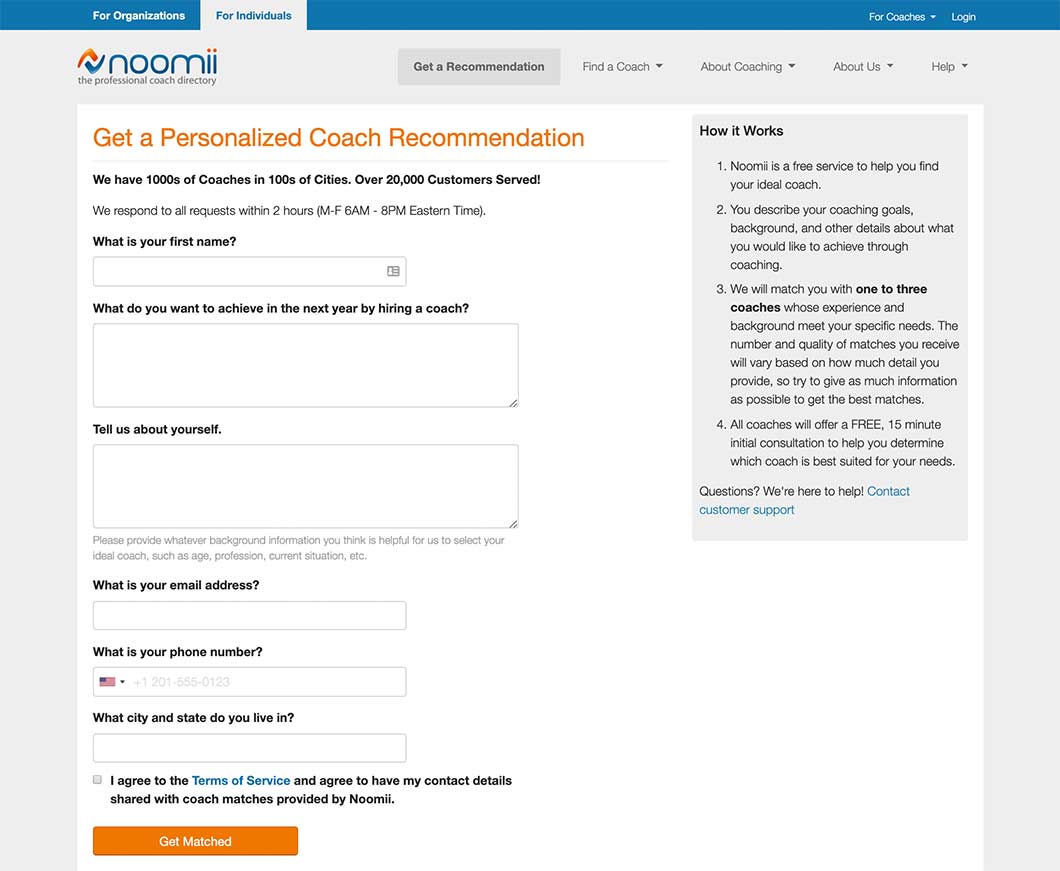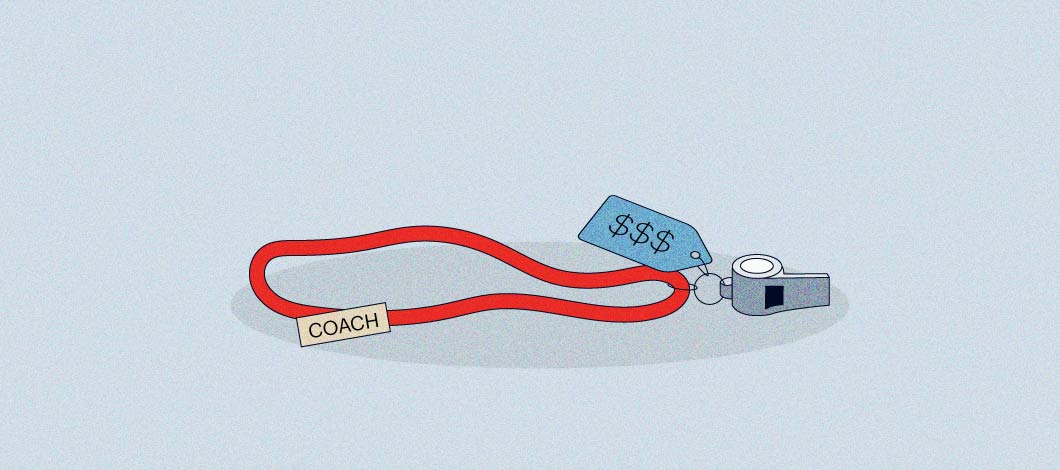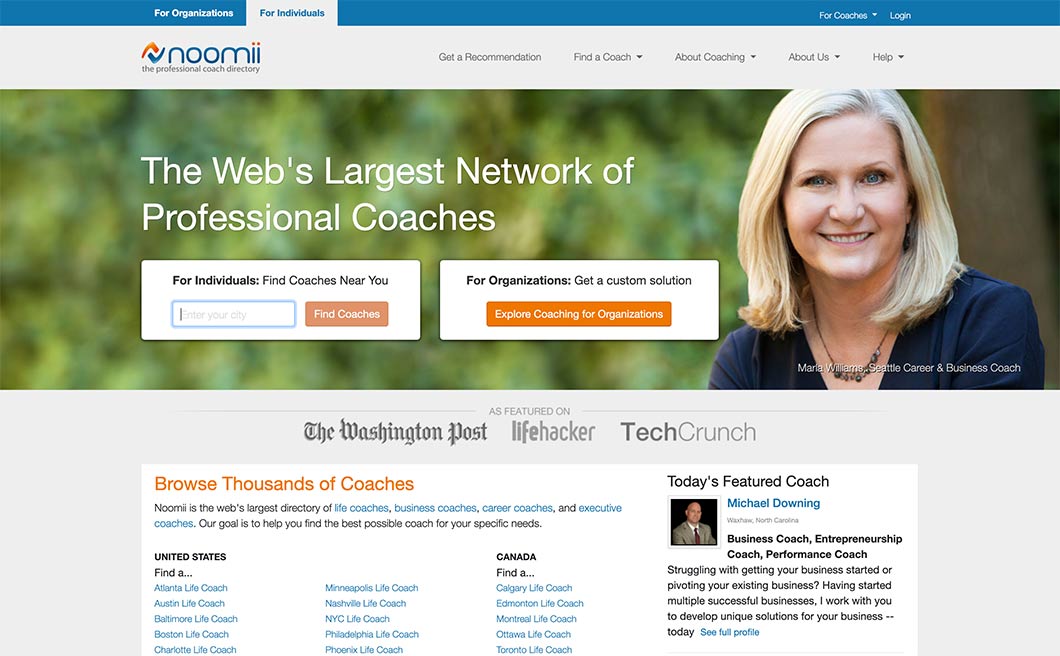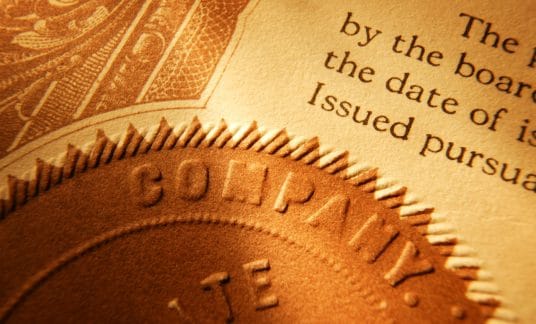Proactive business leaders, professionals and entrepreneurs are always looking for ways to refine their craft and build their companies. To that end, some turn to a business coach for insight and advice on successfully running a business, advancing career paths or scaling up operations.
We’ll look at the advantages of hiring a business coach and show you exactly what to look for when you begin your search.
What Is a Business Coach?
A coach by definition, in business, is a paid professional who provides practical advice, support and problem-solving to business owners, executives and, at times, even other company employees.
Business coaches find out what their clients want to achieve professionally and help them get there with actionable growth plans. They can also work to identify issues that may be hindering growth and offer strategies to overcome them.
In addition to consulting with their clients to understand their objectives and needs, they may use assessments, such as DiSC, to get greater insight on a client’s personality and leadership style. Many coaches also offer training.
Business coaches are good listeners and communicators. Although credentialing and experience can vary in this unregulated industry, business coaches often have years of relevant business experience in one or more of the following areas: account management, sales training, marketing, finance, logistics, business planning, human resources or vendor management. They also may have a bachelor’s degree or higher in a related field, such as business administration or entrepreneurship.
-
Business Coaching Credentialing
Although not required, business coaches can earn industry credentials, such as through the nonprofit International Coaching Federation (ICF). ICF offers 3 credentials, and membership with the organization isn’t required to apply.
- Associate Certified Coach: Applicants for this credential must have completed at least 60 hours of ICF-accredited training, at least 100 hours of coaching experience and have at least 8 clients.
- Professional Certified Coach: Requires at least 125 hours of training, 500 hours of experience and at least 25 clients.
- Master Certified Coach: Applicants must have at least 200 hours of training, at least 2,500 hours of experience and a minimum of 35 clients.
What Does a Business Coach Do?
The role of the business coach is to help guide the business person toward their goals, help them overcome obstacles and be a steady anchor in a sea of complex business decisions. Tracking key performance indicators, they measure their clients’ progress and hold them accountable to their business goals and commitments.
Some business coaches specialize in a particular niche, such as marketing, taxes or personnel management. Other business coaches take a more generalist approach and use their business experience and acumen to advise small business owners and professionals on almost any challenge they might face.
They may introduce clients to their business network to help foster valuable connections, or attend trade shows with clients to show them how to find new vendors.
Why Do You Need a Business Coach?
Launching a business or pulling yourself or your company out of a funk takes effort and dedication, and at times a little something more. Whether you’re a startup entrepreneur or veteran chief executive, sometimes you just need help to do great things.
A business coach can offer much-needed support in the form of a sounding board for new ideas. Perhaps you’re overwhelmed or have lost your focus and need someone to be accountable to. Or maybe you need to clarify the vision of where you want to take your business.
Whatever the case, it’s all about having a clear line of sight to your end goals as well as someone to guide you and hold you accountable toward reaching them. This is why business coaching works.
Regardless of your experience level, consider if a business coach can help you. Typical coaching clients fall in the following age range categories, according to the 2020 ICF Global Coaching Study: Executive Summary:
- 37%: 35-44 years old
- 30%: 45-54 years old
- 24%: 34 years old and under
- 9%: 55 years old and older
Why Is Business Coaching Important?
Just like a sports coach, a business coach is able to provide direction and tell you which exercises and moves to make to improve your performance (sans the whistle). They also are able to spot weaknesses and blind spots you may not know you have.
Aside from being able to help you work toward increasing your revenue, coaching can lead to greater professional and personal satisfaction, more confidence and reduced stress. You’ll be challenged to think differently, which could result in profitable business breakthroughs.
Needless to say, a good coaching program can be a valuable investment in your short- and long-term growth.
How Can You Find Business Coaches?
While a simple Google search with the phrase “business coach” will return results, check out the free professional coach directory Noomii.
Search for business coaches by location. Access their bios, hourly rates, education details, certification credentials and more. In some cases, you might be able to hear an audio recording of the business coach being interviewed by a Noomii representative.
Noomii also scores each coach on a scale from 0-10, and clients are able to leave reviews and ratings.
If you find someone you feel might be a good fit for your needs, you can request a free 15-minute consultation on the platform. If you would like help finding a coach, you can also submit a personalized coach recommendation request, and Noomii will provide you with 1-3 suggestions based on your responses to questions on the form.

Questions to Ask a Potential Business Coach
Before choosing a business coach to work with, you want to understand his or her methodology and you want to know you’ll have a good rapport.
Find out more details before you hire a coach by asking questions like these:
- What is your coaching process?
- Do you have any industry credentials or certifications? If so, which ones?
- What professional business experience do you have?
- Do you have specific business experience that compares to mine?
- Can you tell me about your history as a business coach?
- How will the business coaching be delivered? (i.e., in-person, online, phone or combination)
- Over what time period will the coaching be offered?
- Can you provide examples of personal business achievements?
- Can you tell me a time when you helped a business owner overcome an obstacle?
- May I share some of my immediate needs to see if they’re within your purview?
- Have you authored any thought leadership pieces?
- Can you provide a few references?

How Much Does a Business Coach Cost?
According to business and executive coaching company Protoly, pricing of up to $300-$500 per hour is common. That said, the National Coach Academy notes pricing can start as low as $25 an hour depending on the coach.
Coaches typically function in one of two capacities: They either work with a client to develop their strengths, or they work with a client to improve on their weaknesses. Pricing fluctuates depending on which approach the business coach needs to take.
Protoly notes roughly half of strength-focused business coaches have an hourly rate of $300 or more. In contrast, a rate of $500 or more is seen with more than 60% of coaches who assist clients with overcoming deficits. Companies hiring business coaches for their executives paid a median hourly rate of $425.
Additionally, rates can go up depending factors such as the client’s seniority, higher revenues and business coach’s experience. Location and industry also can affect pricing.
You might find a business coach who offers package deals, with reduced fees for multiple sessions, or monthly programs. Data from the ICF report shows 40% of coaches with a specialty usually work with a client for 7 months or more, while the same is true for 28% of generalist coaches.
Before making a decision, weigh the potential return on investment of hiring a business coach. Consider the value you could get out of having a business coach against the cost to determine if hiring one makes sense for you.
The value a good coach brings to the table is considerable, but make sure you find the right coach for your business needs.













